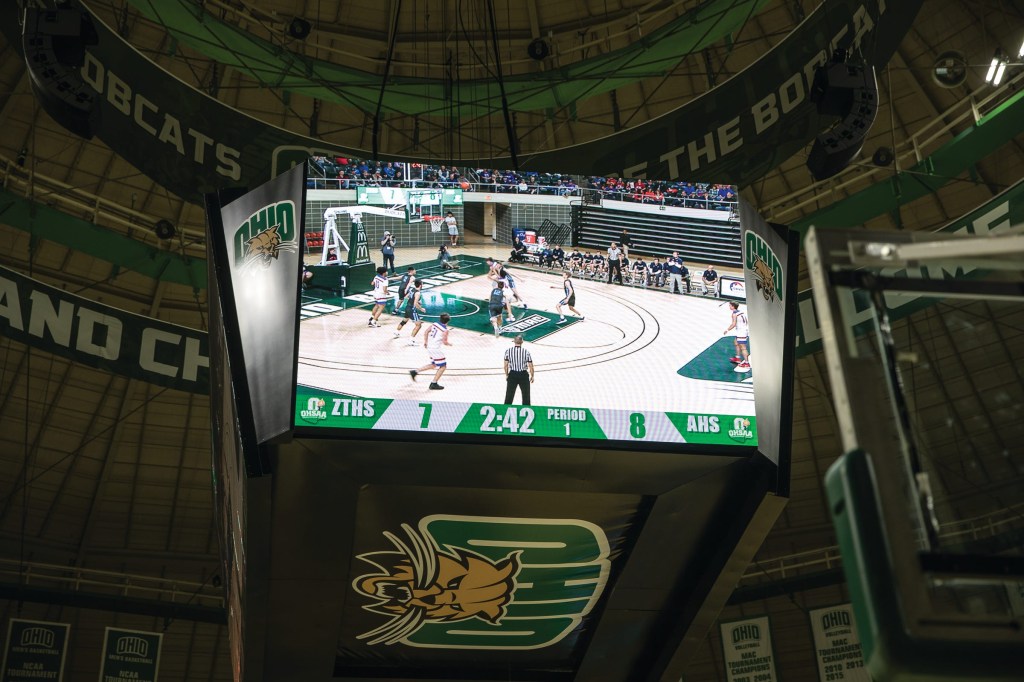By: Derrick Sanchez, @derricksanchez

THIS IS A WARNING: This is obviously first-hand experience, so take this with a grain of salt. Your personal experience may or may not be different from mine. I thought it would be beneficial for individuals wanting to make that jump. For those that ever thought about making the plunge into the sports industry, the struggle is real.
At the time of this writing, it has been approximately ten months since I started my sport management program at the University of San Francisco (USF). While I’ve knocked out five classes thus far on my way to a master’s degree, I sometimes wonder when I’ll get my break; when will I make the jump into a full-time career in sports?
Aside from being a contributor for Front Office Sports, I also have an internship as a social media manager for USF. As great as it is, I want to work for a professional sport organization.
Is this what I envisioned as a start to my career in sport management? Yes, and no, technically speaking. Allow to me elaborate….
I come from the land of startups and Silicon Valley techies. I’m no longer in the entry level, fresh out of college job, but I’m not a mid-level employee either. When I wrapped up my undergraduate studies, I didn’t know exactly what I wanted to do with myself. I thought I wanted to work in tech, especially since the biggest players in the game were setting up shop up and down the Valley.
After four years of working alongside with some very brilliant minds, who tried to flip the script on the parking industry with smart sensors, and another company that tried to revolutionize data management, I said to myself enough was enough. My heart was never there to begin with. Sure, I never was employed over at Google or Facebook, but the perks were still pretty sweet: catered lunches, all-you-can-eat snacks, company outings, and even foosball tables and big screens in the break rooms. Yeah, the pay was pretty good, but something was lacking.
Passion.
Initially, the thought of working in a tech start-up was a dream, glamorized by the techno-entrepreneurial start-up successors who became celebrities. I found out quickly that it wasn’t for me.
So what made me want to go back to school and break into the sports industry? Passion. I did my due diligence by going to a few sports business related networking events and met with reps from a few sport management programs in the area. Growing up I loved sports, but I wasn’t a great athlete, so I didn’t think a career was viable. After some serious thought, I knew I wanted to dive in; if I have to work for the next 30–40 years of my life, then it’s going to be something I’m severely passionate about.
But, let’s fast-forward to today. With four years of marketing experience at two tech companies, I developed some pretty good skills that could be useful in any company — marketing, creative writing, and campaign management to name a few. Yet, I’m on the outside looking in; I’ve been to over seven interviews for internships and part-time jobs. That’s where I went wrong. Don’t get me wrong, it was good experience to get those interviews, but I already pumped myself up to say no if they offered me a job. I guess I was there hoping they would throw me a suitcase of cash and beg me to take the job. Full-time gigs are where I should have been searching. The problem is there are about thirty teams for each professional league, and their marketing departments make up only a small handful of individuals per team. Have I tried agencies? Yes, to no avail. What about media and publishing companies? You bet. Did I also try universities or athletic programs? Indeed. In fact, I got a little desperate and interviewed for a part time job but found out working in education does not pay well.
At this point in my career, I’m positive I want a position where I can be creative and have a voice. But will I ever land that job? Does a job like that even exist?
For some of my cohort mates, they might have found exactly what they want to do the rest of their lives. My cohort mates have interned with some the best sports organizations in the Bay Area. Albeit it does involve degrees of grunt work, my cohort mates are making a name for themselves, earning their keep, and hoping to get hired within the organizations. Heck, some of them have already landed full time gigs. Good for them!
I’ve taken advice from my program advisors, and I keep hearing the same advice: ‘Be patient. An opportunity will come’.
I don’t want to discourage any individuals looking to switch industries and not leave their plushy, high paying job; if that’s what makes them happy, then to each their own. I’m struggling to make the transition into the sports industry, but that’s okay.
Sooner or later, I may have to take a back seat and start from the bottom, but I will make it in this industry. The struggle is real, but I’ve learned right away that if you’re willing to do just about anything to make it, and you’re willing to make the sacrifices, you have a great chance to make it.
Be warned.

















